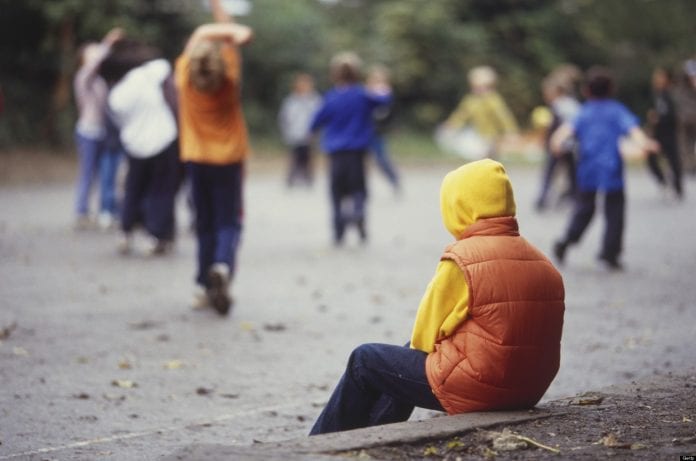The British Red Cross is urging the Welsh Government to come up with a plan to tackle loneliness this winter, as a new report shows that many people aren’t coping. In new polling, over a third of people (37%) in Wales said loneliness was having a negative impact on their mental health.
With most of the country now back under tighter restrictions, the British Red Cross is calling on everyone – governments, charities, communities and individuals – to come together and look out for the most vulnerable people in society.
The charity wants the Welsh Government – as well the UK and other devolved governments – to pull together with civil society and act fast in order to prevent a loneliness emergency among the most vulnerable this winter, at a time when the nights are drawing in and people are increasingly cut off from each other.
The call comes as the British Red Cross publishes a new report Lonely and left behind which offers the most detailed study yet of the impact coronavirus is having on people’s loneliness.
It includes the day-to-day experiences of 16 people who were shielding or isolating immediately after the first lockdown period.
Polling conducted to coincide with the report publication shows that in Wales:
- A quarter of people (26%) worry something will happen to them and no one will notice.
- 27% say they often feel alone, like they have no one to turn to.
- 26% of adults say their neighbours are like strangers to them.
- 29% say they hadn’t had a meaningful conversation with someone in over a fortnight.
- 37% say loneliness is having a negative impact on their mental health.
- 31% of adults are concerned that their loneliness will get worse.
The main body of evidence in the report – a combination of in-depth, one-to-one interviews and diary entries completed between 22 July and 1 September 2020 – paints a rich picture of the challenges faced by people who have had very limited contact with others for a number of months – the boredom, low mood, creeping “bad habits” and loneliness.
The report also touches on other key considerations – worries about money, the loss of a job, caring and parenting responsibilities – and shows that, not only are some people feeling lonelier than ever, they don’t always know what to do to get help. Research participants from Wales said they feel isolated due to living in rural areas or being unable to meet family for extended periods of time. Worries about finances and how they will cope emotionally during the winter were also mentioned as having a negative impact on their mental health.
The British Red Cross now wants to see governments across the UK work with charities, communities and wider civil society – to build on work already done through the UK Government’s first plan to tackle loneliness during lockdown.
As part of this, the organisation is calling on them to further invest in services tackling loneliness, raise awareness of alternative ways for people to connect with each other this winter, and support local authorities and health systems to identify and address those most at risk of loneliness.
Iain Mclaren manages the Red Cross Community Support service that has been supporting people in Rhondda Cynon Taf and Merthyr Tydfil throughout the Covid-19 emergency. The aim of the service is to help people reduce their feelings of loneliness and social isolation by identifying interests, activities and like-minded groups of people in the community, by helping them to build confidence to engage, and by providing practical and emotional support to increase personal resilience.
Iain said: ‘It’s been a challenging and lonely time for the people we support. Our service has been busy, and we have experienced an increase in demand due to rising loneliness and isolation.
‘During lockdown, we have been supporting more people for longer. The fact that most of our support has been over telephone while coronavirus restrictions were in place allowed for this.’
When the first lockdown ended, the Red Cross team could visit people they had been supporting by telephone. Iain said: ‘It was a relief to many that we were able to carry out some more regular visits when restrictions were eased in July. These visits were hugely beneficial, particularly to those lonely and isolated. While in lesser restrictions, we begun visiting the people we support as well as carrying out shopping and prescription assistance among other things.
‘We have had to resort to telephone support again when local lockdown restrictions were re-introduced in Rhondda Cynon Taf and Merthyr Tydfil, but we continued to review any requests on a case by case basis dependent on need. During the ‘firebreak’ restrictions we provided support by telephone only and look forward to be able to visit people when it will be safe to do so.’
British Red Cross executive director Zoe Abrams said: ‘If we’re going to avoid a loneliness emergency this winter, we have to listen to the people who are telling us the coronavirus crisis is leaving them feeling left behind and lonelier than ever.
‘Our report shows that many vulnerable people are feeling cut off, like their problems aren’t important, and unable to think of anything that might improve their situation; a troubling combination at a time when Covid-19 restrictions have tightened again.
‘We all need to act together now – the UK’s four governments, communities, neighbours and friends – to tackle loneliness this winter.
‘Charities like the British Red Cross, who have been leading the way when it comes to working with people to address their loneliness, must continue to help people find new ways of keeping in touch with loved ones, including through digital technology.’
In the report, the British Red Cross also calls for:
- Civil Society organisations to continue to tackle loneliness, share learning and put the needs of those most at risk of loneliness first.
- Governments to make sure those most at risk of loneliness are able to access the mental health and emotional support they need to recover from the impact of the coronavirus crisis.
- Tackling loneliness to be included in medium and long-term Covid-19 recovery plans.
The British Red Cross is working to find and meet the needs of those who would otherwise go unnoticed in the pandemic, in particular, those who are lonely and isolated.
Anyone can call its coronavirus support line for help on 0808 196 3651.
Wherever people are in the UK, those with access to the internet can access a great toolkit of resources for adults and young people, including online group sessions and digital classrooms, as well as thought-provoking podcasts where others share their experiences of tackling loneliness.
If you are feeling lonely and would like to reach out please call the British Red Cross coronavirus support line on 0808 196 3651 or access our online loneliness resources at www.redcross.org.uk/loneliness-resources
Help keep news FREE for our readers
Supporting your local community newspaper/online news outlet is crucial now more than ever. If you believe in independent journalism, then consider making a valuable contribution by making a one-time or monthly donation. We operate in rural areas where providing unbiased news can be challenging. Read More About Supporting The West Wales Chronicle

























